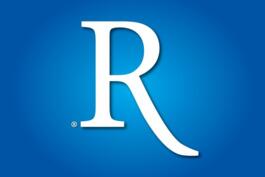Tea Party Optimism vs. the Gold Rally
A Commentary By Lawrence Kudlow
Money and politics is about my favorite topic (apart from spiritual faith, of course). And we had plenty of both in the last day or two.
Moderate Democrat Evan Bayh retires from the Senate, kind of sticking it to Team Obama (and by the way, Harry Reid), basically saying, “You know, if you quit all this left-wing, cap-and-trade, government-takeover-of-health-care stuff, and the constant political favors and favoritism to the unions, especially the government employee unions, you might have a shot at saving your presidency and containing the midterm-election losses this November.”
But Mr. Bayh’s departure also opens up an eighth solid potential GOP Senate seat. And that brings Washington that much closer to grid-locking the left wing -- something that stock markets and the investor class are cheering, with share prices jumping 170 Dow points today.
Might the tax hikes be stopped? It’s possible. Might the big-government assault on businesses and capital and free markets be stopped, or at least slowed? Again, it’s possible.
And then there’s the Gov. Chris Christie story. Out of the blue the moderate Republican turns to Reaganism by announcing a freeze on $1.6 billion of unspent balances, according to the Wall Street Journal, saying “government is the problem, not the solution.” It’s a veritable shot across the bow of Washington big-government leftism. The freeze might save New Jersey from bankruptcy. It might even save socialist Greece by setting an example of fiscal responsibility (although that’s a bit far-fetched). Heck, it might even save America from bankruptcy if the political class in Washington takes notice.
Meanwhile, the tea-party movement rolls on. I call it free-market populism, or “leave us alone and let us keep more of what we earn.” Fifty leaders are meeting with RNC chair Michael Steele, and I sure hope Mr. Steele listens carefully. It’s Scott Brown, Chris Christie, Bob McDonnell, Prop. 13, Ronald Reagan, and the Constitutional Fathers all rolled into one. (There’s even a little bit of tea party in Germany, which so far is rejecting a bailout of Greece.)
But here’s the rub. The price of gold is booming again, up huge today, despite the fact that the dollar has been rising. This is a message of tea-party skepticism. It’s a message that worldwide big government spending is still the dominant political thinking.
The dollar is not really strong; it’s the euro that’s very weak. But gold is saying a pox on all your houses. It’s a currency substitute. It’s an inflation play. It says that all this government spending will eventually be monetized by big-government central-bank money-creation. Therefore, gold becomes a safe harbor, still doubtful that a tea-party revolution in the U.S. will actually come to pass and possibly spread around the world.
Because I share the tea-party optimistic view that We the People, Thomas Jefferson style, can overturn central-planning elites and the left-wing college professors, I am hoping that the gold rally falls short.
Time will tell.
COPYRIGHT 2010 CREATORS.COM
See More Commentary by Lawrence Kudlow
See Other Political Commentary
Views expressed in this column are those of the author, not those of Rasmussen Reports.
Rasmussen Reports is a media company specializing in the collection, publication and distribution of public opinion information.
We conduct public opinion polls on a variety of topics to inform our audience on events in the news and other topics of interest. To ensure editorial control and independence, we pay for the polls ourselves and generate revenue through the sale of subscriptions, sponsorships, and advertising. Nightly polling on politics, business and lifestyle topics provides the content to update the Rasmussen Reports web site many times each day. If it's in the news, it's in our polls. Additionally, the data drives a daily update newsletter and various media outlets across the country.
Some information, including the Rasmussen Reports daily Presidential Tracking Poll and commentaries are available for free to the general public. Subscriptions are available for $4.95 a month or 34.95 a year that provide subscribers with exclusive access to more than 20 stories per week on upcoming elections, consumer confidence, and issues that affect us all. For those who are really into the numbers, Platinum Members can review demographic crosstabs and a full history of our data.
To learn more about our methodology, click here.



